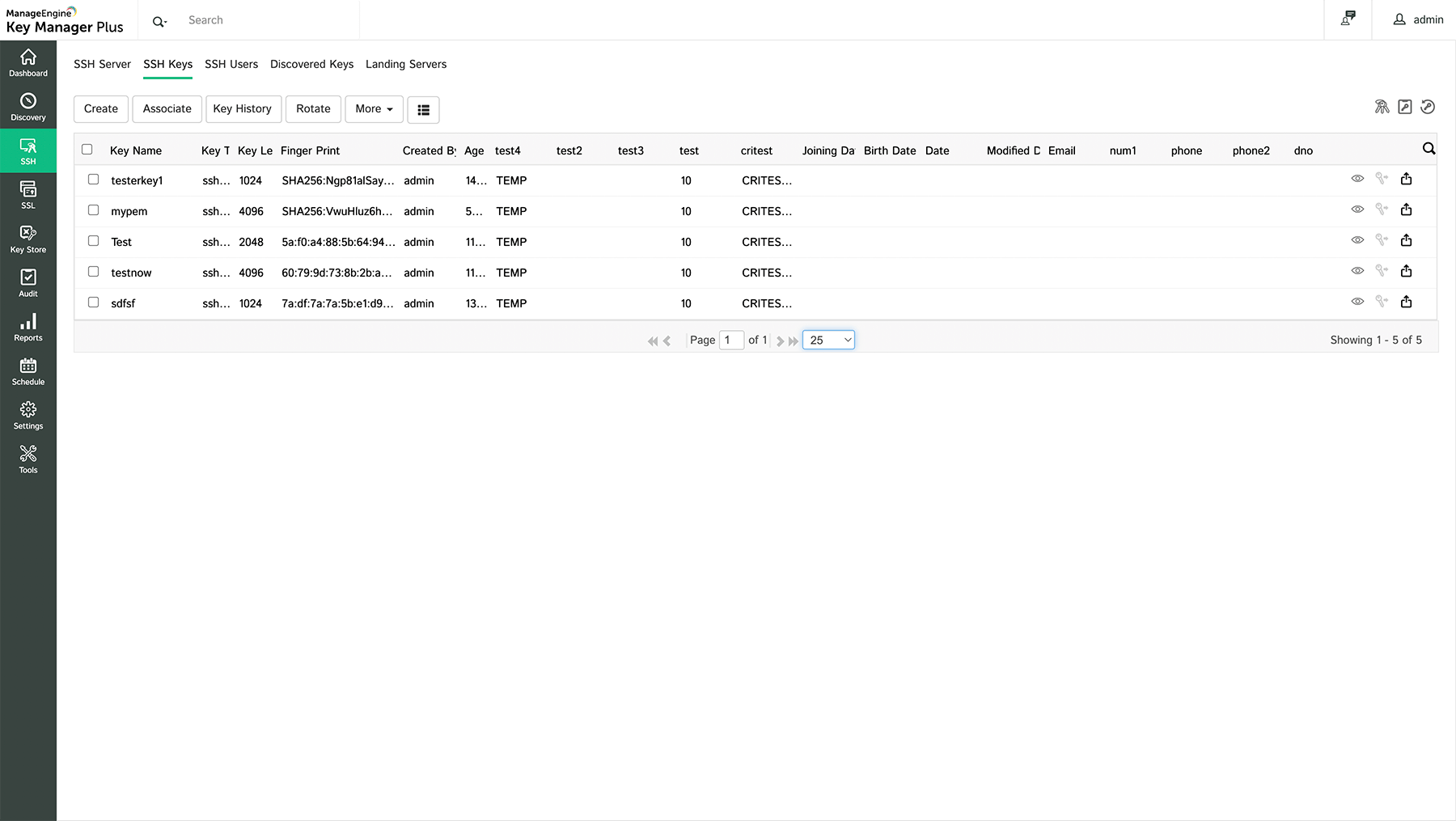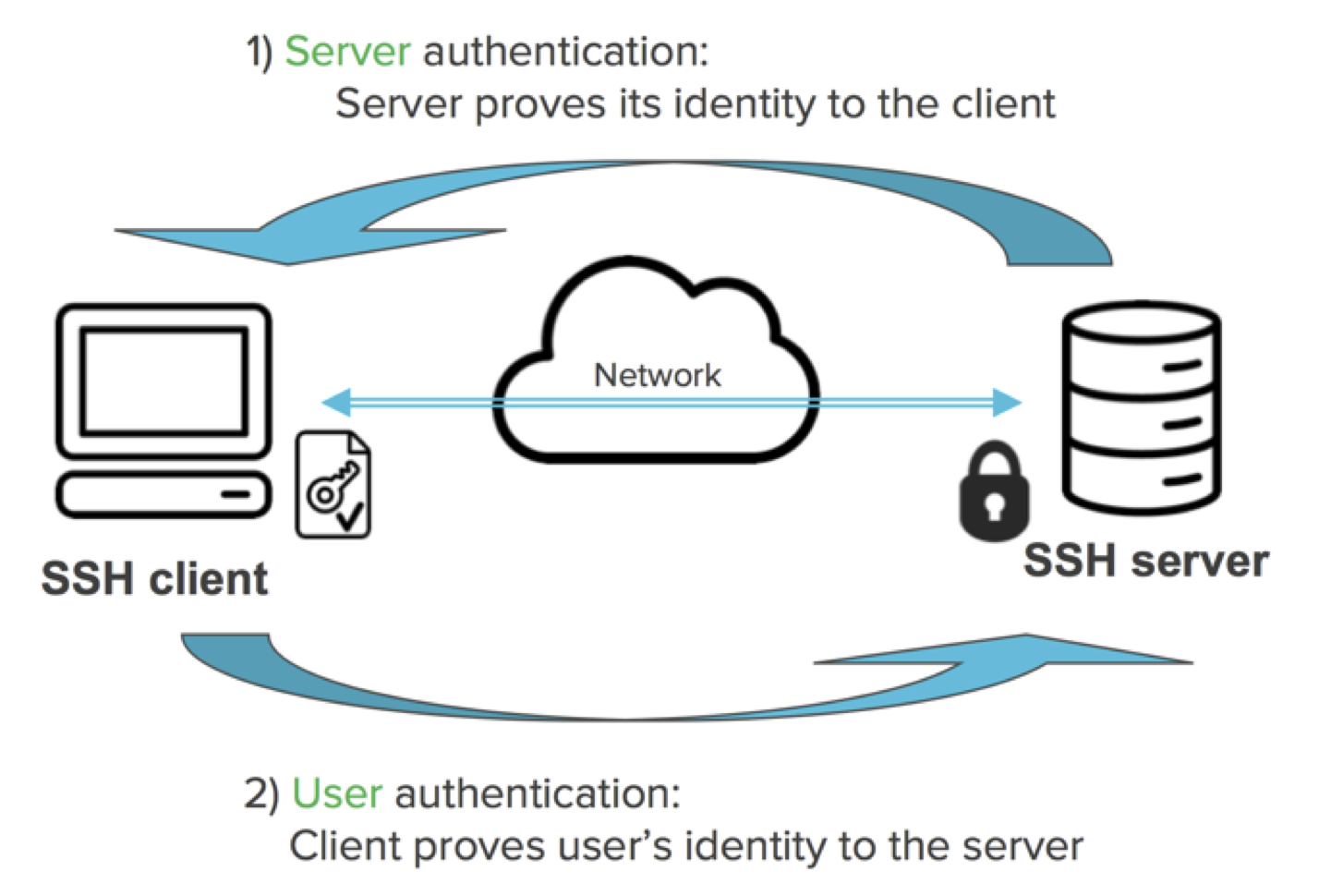Mastering RemoteIoT SSH Key Management: A Comprehensive Guide
Let’s talk about something super important in the world of tech—RemoteIoT SSH key management. Yep, you heard that right. It’s not just some random tech jargon; it’s a critical piece of the puzzle when it comes to securing your IoT devices from the prying eyes of cyber criminals. Whether you're running a small home automation setup or managing an entire fleet of industrial IoT gadgets, SSH key management is the backbone of secure remote access.
Now, you might be thinking, "Why should I care about SSH keys?" Well, buckle up because I’m about to break it down for you. SSH keys are like digital keys that let you unlock access to your devices without needing passwords. They're faster, safer, and way less hassle than typing in those long, complicated passwords every time. But here's the catch—if you don’t manage them properly, you’re leaving yourself wide open to all sorts of security risks.
So, whether you're a seasoned IT pro or just dipping your toes into the IoT waters, this guide is going to walk you through everything you need to know about RemoteIoT SSH key management. We’ll cover the basics, dive into best practices, and even throw in some pro tips to keep your systems locked down tight. Ready? Let’s get started!
- Chase My Mortgage A Comprehensive Guide To Tracking And Managing Your Home Loan
- Somali Wasmo Cusub Telegram 2024 A Deep Dive Into The Latest Trends
What is RemoteIoT SSH Key Management?
Alright, let’s start with the basics. RemoteIoT SSH key management is all about keeping your IoT devices secure when you’re accessing them remotely. Think of it like a digital lock-and-key system that lets you into your devices without having to remember a bunch of passwords.
SSH stands for Secure Shell, and it’s basically a protocol that lets you connect to devices securely over a network. When you use SSH keys, you’re creating a pair of keys—one public and one private—that work together to authenticate your access. The public key lives on the device you’re trying to access, while the private key stays on your computer. When you try to log in, the two keys match up, and voila—you’re in.
Managing these keys is crucial because if someone gets ahold of your private key, they can basically waltz right into your devices like they own the place. That’s why having a solid SSH key management strategy is so important, especially when you’re dealing with RemoteIoT setups.
- Alice Rosenbl Leaked The Truth Behind The Headlines
- Alicia Rosenblum Leaked Of The Full Story You Need To Know
Why is SSH Key Management Important for RemoteIoT?
Here’s the deal—IoT devices are everywhere these days, and they’re only getting more connected. From smart thermostats to industrial sensors, the number of IoT devices out there is skyrocketing. And with all that connectivity comes a whole lot of security risks.
SSH key management helps you keep those risks in check by making sure only the right people can access your devices. Without proper management, you could end up with keys floating around everywhere, making it easy for hackers to get in. Plus, if you’re using passwords instead of keys, you’re opening yourself up to brute-force attacks and all sorts of other nastiness.
So, whether you’re managing a handful of devices or a whole network of them, SSH key management is your first line of defense against cyber threats. It’s not just about keeping your data safe—it’s about protecting your entire IoT ecosystem.
Best Practices for RemoteIoT SSH Key Management
Now that we’ve covered the what and why, let’s talk about how to do it right. Here are some best practices for managing SSH keys in a RemoteIoT environment:
- Use Strong Keys: Make sure your keys are long and complex. The longer the key, the harder it is for someone to crack it.
- Limit Access: Only give access to the people who absolutely need it. The fewer keys floating around, the better.
- Regularly Rotate Keys: Don’t just set it and forget it. Rotate your keys regularly to keep things fresh and secure.
- Store Keys Safely: Keep your private keys in a secure location, like a hardware security module or a secure cloud storage solution.
- Monitor Key Usage: Keep an eye on who’s using your keys and when. If something looks fishy, investigate it right away.
By following these best practices, you can significantly reduce the risk of a security breach and keep your IoT devices running smoothly.
Common Mistakes in SSH Key Management
Even the best of us make mistakes sometimes, and SSH key management is no exception. Here are a few common pitfalls to watch out for:
- Using Weak Keys: Don’t skimp on key strength. A weak key is like leaving your front door unlocked—it’s just asking for trouble.
- Sharing Keys: Never, ever share your private key with anyone. If someone else needs access, generate a new key for them.
- Not Rotating Keys: Sticking with the same keys for too long is a recipe for disaster. Make sure you’re rotating them regularly.
- Ignoring Key Usage: If you’re not keeping track of who’s using your keys, you might not notice when something goes wrong until it’s too late.
Avoiding these mistakes is key (pun intended) to maintaining a secure SSH key management system. Trust me, the last thing you want is to find out the hard way that your keys weren’t as secure as you thought they were.
How to Generate SSH Keys for RemoteIoT Devices
Generating SSH keys might sound complicated, but it’s actually pretty straightforward. Here’s a quick step-by-step guide:
- Open your terminal or command prompt.
- Type
ssh-keygen -t rsa -b 4096to generate a strong RSA key. - Follow the prompts to save the key and set a passphrase (optional but recommended).
- Copy the public key to your IoT device using
ssh-copy-idor manually adding it to the~/.ssh/authorized_keysfile.
That’s it! You’ve now generated a secure SSH key pair that you can use to access your RemoteIoT devices. Easy peasy, right?
SSH Key Management Tools for RemoteIoT
Of course, managing SSH keys manually can be a bit of a pain, especially if you’re dealing with a large number of devices. That’s where SSH key management tools come in. Here are a few popular options:
- HashiCorp Vault: A powerful tool for managing secrets, including SSH keys. It offers robust security features and integrates with a variety of platforms.
- Duo Beyond: Provides secure access to SSH servers and helps manage keys across multiple devices.
- KeyCDN: Offers a simple, cloud-based solution for managing SSH keys and other security credentials.
- SSH.com: A comprehensive SSH management solution that includes key management, monitoring, and reporting features.
Using a dedicated SSH key management tool can save you a ton of time and hassle, so it’s definitely worth considering if you’re managing more than a few devices.
Security Risks of Poor SSH Key Management
Let’s talk about the elephant in the room—what happens if you don’t manage your SSH keys properly? Well, the short answer is—it’s not pretty. Here are a few potential security risks:
- Unauthorized Access: If someone gets ahold of your private key, they can easily access your devices without needing a password.
- Data Breaches: Poor key management can lead to data breaches, where sensitive information is exposed to unauthorized parties.
- Compliance Issues: Many industries have strict regulations around data security, and failing to manage your keys properly could put you in violation.
- Reputation Damage: A security breach can do serious harm to your company’s reputation, making it harder to win new business in the future.
As you can see, the risks of poor SSH key management are real, and they’re not something you want to mess around with. Taking the time to set up a proper management system is well worth the effort.
Future Trends in RemoteIoT SSH Key Management
As technology continues to evolve, so does the world of SSH key management. Here are a few trends to keep an eye on:
- AI-Driven Management: AI and machine learning are starting to play a bigger role in managing SSH keys, helping to automate tasks and identify potential security threats.
- Cloud-Based Solutions: More and more companies are moving their SSH key management to the cloud, where they can take advantage of scalable, on-demand resources.
- Quantum-Safe Cryptography: With the rise of quantum computing, there’s growing interest in developing SSH keys that are resistant to quantum attacks.
Staying on top of these trends can help you future-proof your SSH key management system and keep your RemoteIoT devices secure for years to come.
How to Audit Your SSH Key Management System
Regularly auditing your SSH key management system is a great way to make sure everything’s running smoothly. Here’s how to do it:
- Inventory all your keys and make sure they’re properly stored and protected.
- Check for expired or unused keys and remove them from the system.
- Review access logs to ensure only authorized users are accessing your devices.
- Test your key rotation process to make sure it’s working as expected.
By auditing your system regularly, you can catch potential issues before they become serious problems. It’s like giving your security system a tune-up—just good maintenance practice.
Conclusion
So there you have it—a comprehensive guide to RemoteIoT SSH key management. From understanding the basics to implementing best practices and avoiding common mistakes, we’ve covered everything you need to know to keep your IoT devices secure.
Remember, SSH key management isn’t just about security—it’s about peace of mind. Knowing that your devices are protected from cyber threats allows you to focus on what really matters—running your business or managing your home automation setup without worrying about hackers lurking in the shadows.
Now it’s your turn. Take what you’ve learned here and put it into practice. Generate those strong keys, set up a solid management system, and keep your devices safe and sound. And don’t forget to share this article with your friends and colleagues who could benefit from it. Together, we can make the IoT world a safer place—one SSH key at a time!
Table of Contents
- Mastering RemoteIoT SSH Key Management: A Comprehensive Guide
- What is RemoteIoT SSH Key Management?
- Why is SSH Key Management Important for RemoteIoT?
- Best Practices for RemoteIoT SSH Key Management
- Common Mistakes in SSH Key Management
- How to Generate SSH Keys for RemoteIoT Devices
- SSH Key Management Tools for RemoteIoT
- Security Risks of Poor SSH Key Management
- Future Trends in RemoteIoT SSH Key Management
- How to Audit Your SSH Key Management System
- Conclusion



Detail Author:
- Name : Mr. Francisco Kuhlman
- Username : kenton70
- Email : abbey68@yahoo.com
- Birthdate : 1976-11-04
- Address : 4609 Price Shore New Geraldside, NY 54692
- Phone : (458) 888-1408
- Company : Jerde-Gorczany
- Job : Home Health Aide
- Bio : Inventore labore voluptas tenetur temporibus at voluptates sed. Debitis repellendus incidunt laborum dolores sunt. Quasi a iure nulla fuga eos voluptas et exercitationem.
Socials
tiktok:
- url : https://tiktok.com/@ahansen
- username : ahansen
- bio : In aut quae laborum eos in.
- followers : 4473
- following : 789
facebook:
- url : https://facebook.com/hansen1980
- username : hansen1980
- bio : Rerum dolor ipsa esse eaque rerum dolorum occaecati.
- followers : 6448
- following : 379